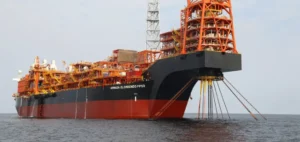Botas signs a contract with Shell PLC for the purchase of 4 billion cubic meters of LNG per year, over a ten-year period starting in 2027.
This new agreement enables Botas to increase its natural gas supplies via LNG cargoes, rather than relying solely on pipelines.
Turkish Energy Minister Alparslan Bayraktar says the agreement includes the delivery of 40 annual cargoes, with flexible unloading options to terminals in Europe.
The agreement aims to strengthen Turkey’s energy security, while enabling it to play a strategic role in the European market.
By joining forces with Shell, Botas seeks to strengthen its position in the LNG market by diversifying its sources of supply.
The agreement follows a recent trend of increasing LNG imports into Turkey.
By 2023, around 28.3% of Turkey’s gas consumption will come from LNG, representing 14.3 billion cubic meters out of a total consumption of 50.5 billion.
This trend underlines the importance for Turkey of securing its energy sources through long-term contracts with a number of international players.
Turkey as a regional energy hub
The agreement with Shell is part of Turkey’s wider strategy to become an energy supply hub for Europe.
With a regasification capacity of 0.16 billion cubic meters per day, Turkey is developing its infrastructure to receive growing volumes of LNG, guaranteeing flexibility of supply.
This capacity also offers a credible alternative to pipeline gas imports, enabling a rapid response to variations in European market demand.
In May, Botas also signed an agreement with ExxonMobil Corp.
for the purchase of 2.5 million tonnes of LNG per year over ten years.
This type of agreement demonstrates Turkey’s determination to secure its supply while developing diversified energy corridors for Europe.
With these partnerships, Turkey can not only meet its own energy needs, but also play a central role in redistributing LNG to other European markets.
Impact on the European energy market
These agreements with Shell and ExxonMobil position Turkey as a key player in the supply of gas to Europe.
By increasing its regasification capacity and diversifying its suppliers, Turkey is able to offer flexibility and security to European countries.
The additional volumes of LNG that will be available from 2027 strengthen alternative supply capacities in the face of geopolitical uncertainty and tensions on world energy markets.
This strategy is also a response to the challenges of volatile gas prices on the world market.
By positioning itself as an LNG import and redistribution hub, Turkey offers an alternative to traditional supplies, such as those from Russia, enabling European buyers to secure their supplies while limiting their exposure to geopolitical risks.
Outlook for energy security
By multiplying its partnerships and increasing its LNG import capacity, Turkey is securing a central place on the European energy scene.
These initiatives reduce dependence on single suppliers and offer a variety of supply options.
Agreements with Shell and ExxonMobil reinforce this strategy by securing large volumes of LNG over the long term.
Turkey, with its growing regasification capacity and modernized infrastructure, is positioning itself as a pivot in Europe’s natural gas supply chain.
This proactive strategy could serve as an example to other countries seeking to strengthen their energy security in a global context of high demand and geopolitical tensions.





















